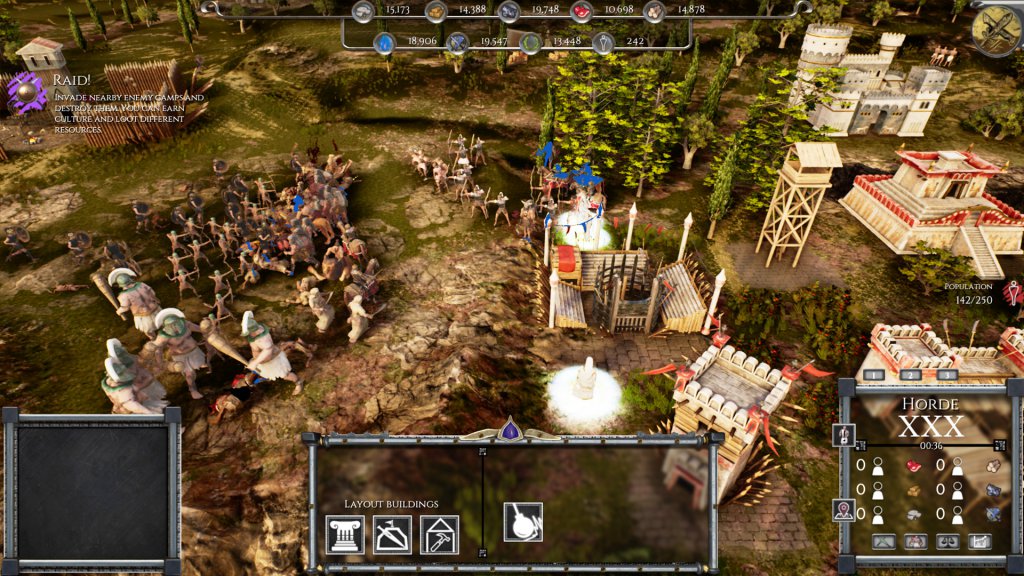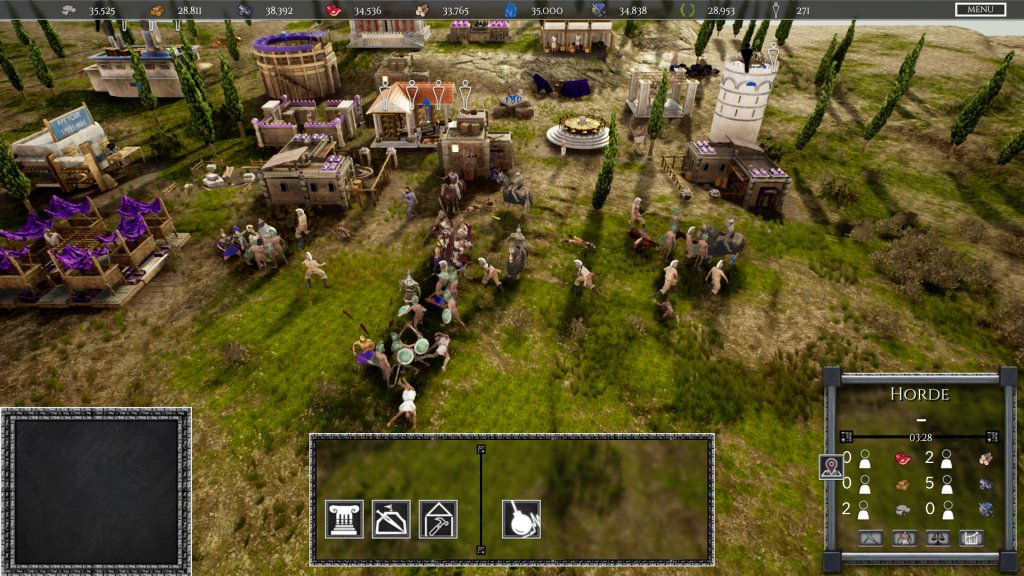Nibû review — The barbarians are coming!
In ancient times, hordes of barbarians threaten the Near East and three civilisations are the only ones who can fend them off. Thus is the premise of Nibû, a wave-defence, real-time strategy game developed and published by Enki.
Nibû does have a story about an alliance standing against the hordes, but its not exactly the game’s focus. In the absence of a campaign, said focus instead lies on single-player defence maps. Pick one of three ancient civilisations — Assyrians, Babylonians or Medes — and brace yourself for the storm.
Before the storm hits, Nibû sticks fairly close to the established formula of real-time strategy: gather resources, build a base, manage your army. The structures offered are the standard production facilities, tech buildings and pop buildings. The latter comes with an interesting twist: houses consume meat, and expanding too quickly can drain your resources. Thus, it is not always advised to hit the population cap as quickly as possible.
Another interesting feature is the split of population- and faith-based units. The former can be recruited en masse and will likely form the backbone of your army, while the latter come with a much lower cap and, while generally powerful, can really only be used as support.
Once you have (hopefully) raised your base and recruited an army, the hordes arrive and need to be driven off. Enemy waves become stronger over time, though some seem to be randomised. Even if your base falls and your capitol is razed, you can re-evaluate your strategy and try to survive a couple more waves next time. This adds a nice feeling of progression in an overall rather unforgiving game.
Less interesting is Nibû’s economy. You only start with five workers, slowing down the initial growth of your base. After training a couple more workers to cover all resource nodes, economic development more or less just ends. The maps do not hold any expansion points or neutral critters to kill — your base and resource stockpiles are all there is.
This does allow you to focus on building up your army, but also means that restarting a map get repetitive quickly. There are only so many ways to build up your base, which would be less of an issue if Nibû’s difficulty did not require starting maps over and over again or if the initial buildup phase could be shortened in exchange for resources.
While there is the aforementioned sense of progression, the planning phase is clearly more important than the execution of whatever plan you devised to stop the hordes. Micromanagement does have its place in Nibû, but poor pathfinding and fiddly controls discourage it somewhat.
Instead, knowing what to do right from the start is crucial. Building units not suitable to face the next wave leads to a swift downward spiral: you lose resources; you need to spend more resources to compensate for losses; you have less resources available for the next wave. Later, with a full base and a larger army, it is possible to make a recovery from a few mistakes, but early on, any tactical hiccup can spell your doom.
That does not mean that Nibû is fundamentally flawed; most of its issues can be addressed with a patch and primarily boil down to juggling the numbers a little bit differently and improving the game’s performance. What that leaves you with is a defence strategy game with a fairly generic setting, acceptable graphics and a bit of potential.
Nibû is now available for PC via Steam.



I think you haven’t played the game for a while at least.
Expansions with barbarians are there since patch 1.1
The entire map features military camps to attack and acquire resources.
The game rewards you for expanding fast and stopping the waves early on.
The faster you progress with the game, the higher the chances are to actually win the game.
I do agree with the micromanagment part.
I wouldn’t call the setting generic, there hasn’t been bronze age games for like what, 15 years?